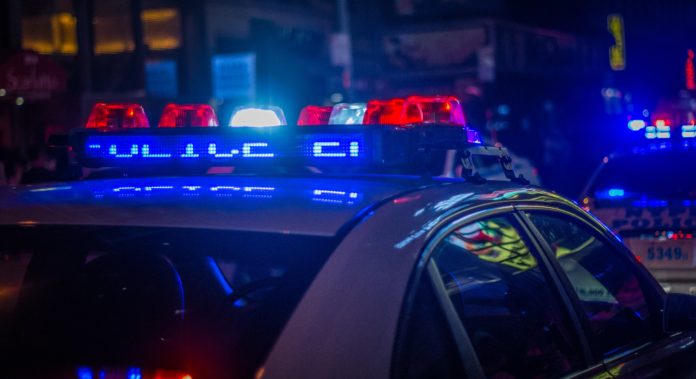Governor Phil Murphy today signed S2742/A4194 into law, establishing a police licensing program for all New Jersey law enforcement officers. The new law will require all law enforcement officers to hold a valid, active license issued by the Police Training Commission (PTC) in order to be employed as officers in the State of New Jersey. Governor Murphy first proposed the legislation in May 2022 and the bill quickly moved through both the Senate and Assembly. New Jersey will become the 47th state to establish a police licensing program.
“I thank my legislative partners for acting quickly on passing this bill and sending it to my desk to sign today. This police licensing program will, formally and finally, recognize all who serve in law enforcement in our state as the specially trained and highly skilled professional they are,” said Governor Murphy. “Officers holding these licenses will be proven professionals who fulfill their duties with honesty and integrity, helping law enforcement strengthen and rebuild the bonds of trust between police and residents in the communities they serve, especially in our Black and Brown communities.”
“This landmark legislation will have real and transformative impact on policing in New Jersey, and will serve to significantly improve trust between law enforcement and the public they are sworn to protect,” said Acting Attorney General Platkin. “One of the strongest commitments of the Murphy Administration has been to ensure the continued excellence and success of New Jersey’s law enforcement officers, while promoting a culture statewide of professionalism, transparency, and accountability.”
“The licensing of law enforcement officers throughout New Jersey provides an additional layer of professionalism and accountability to the men and women who take an oath to serve and protect the citizens of this great state,” said Colonel Patrick J. Callahan, Superintendent of the New Jersey State Police. “I applaud the efforts of Governor Murphy and Acting Attorney General Platkin who have worked tirelessly with the members of the Police Training Commission to enact a statewide licensing program that strengthens transparency and public trust.”
“NJDOC correctional police are highly trained and dedicated professionals with the significant responsibility of protecting the public and ensuring safe and secure facilities” said NJDOC Commissioner Victoria L. Kuhn. “The statewide licensure of law enforcement will continue to build trust and improve accountability for officers that serve in the NJDOC, and each and every community across the state.”
The PTC, which establishes statewide law enforcement standards, voted unanimously in June 2020 to create a statewide police licensing program, recognizing that over 40 states across the country use a form of decertification or licensing for law enforcement officers. In an effort to help build public trust in law enforcement, the police licensing program will require all law enforcement officers to meet certain uniform professional standards to become, or continue to be, an active law enforcement officer in the state.
To better protect the health, safety, and welfare of all citizens, the legislation would grant the PTC the ability and responsibility to monitor and take appropriate actions against the licenses of any law enforcement officer who acts outside the bounds of professional standards or engages in illegal or improper conduct. Some of the conduct resulting in the revocation or non-issuance of a license include:
Conviction of any crime in NJ, or any other state, territory, country, or of the U.S.;
Conviction of an act of domestic violence;
Conviction of any offense that would preclude an officer from carrying a firearm;
Two or more motor vehicle offenses for operating a motor vehicle while under the influence of drugs or alcohol, or two of more motor vehicle offenses for reckless driving;
Being an active member of a group that advocates for the violent overthrow of the government or for discrimination based on classes protected by the Law Against Discrimination (LAD); and
Conduct or behavior in the officer’s personal or professional life such as making statements, posting, sharing, or commenting in support of any posting, on social media, or otherwise, that demonstrates, espouses, advocates or supports discrimination or violence against, or hatred or bias toward individuals or groups based on race, creed, color, national origin, ancestry, sex, marital status, sexual orientation, gender identity or expression, or any other protected characteristic under the “Law Against Discrimination.”
Officers will be subject to renew their licenses three years after issuance.
Primary sponsors of the legislation include:
Senator Linda Greenstein
Senator Troy Singleton
Assemblywoman Verlina Reynolds-Jackson
Assemblyman Benjie E. Wimberly
Assemblyman William W. Spearman
“We have taken major steps over recent years – requiring the use of body-worn cameras, enhancing training, and increasing the diversity of our law enforcement agencies – to fortify the relationships between our communities and the law enforcement agencies that serve them. Police licensure is a commonsense next step,” said Senator Greenstein. “Our communities will be better served – and our law enforcement agencies will be better equipped – with a framework for licensure in place. I’d like to thank my colleagues for supporting this legislation and Governor Murphy for signing it into law.”
“The creation and implementation of a statewide licensure program for law enforcement officers is essential, as it will set requirements and minimum standards for all police at all levels,” said Senator Troy Singleton. “I truly believe that uniform professional standards will help build public trust and ensure that proper policing is occurring across New Jersey.”
“Professional licensure will greatly help ensure law enforcement officers uphold the public trust by maintaining high standards of training and proficiency,” said Assemblywoman Reynolds-Jackson. “Many professions require licensure and are held accountable if they are in violation. The job of law enforcement is as critically important to our communities as the work of doctors and lawyers. This law will raise the level of professionalism that is required to serve our communities in any situation.”
“We should always work to enhance transparency and build better relationships between the police and the residents they protect,” said Assemblyman Bill Spearman. “Through this law, we will be able to hold bad actors accountable for their wrongdoings and ensure that the proper disciplinary actions are pursued.”
“The Police Training Commission will have the ability to better monitor officers and take the appropriate action against those who engage in improper conduct under established licensure standards,” said Assemblyman Benjie Wimberly. “This law is a step toward rebuilding trust in our communities.”
“The State Troopers Fraternal Association has continually been willing to partner with the Governor and members of the legislature in producing common sense police reform legislation. This historic legislation creating a police licensing program here in New Jersey is no exception. This is yet another piece of legislation that we have all worked on together to enhance transparency and promote public trust and confidence in our troopers and all law-enforcement. This bill enhances the concepts of producing a more professional and better trained police officer while incapacitating bad actors for which we have no tolerance,” said Wayne Blanchard, President, State Troopers Fraternal Association.
“The New Jersey Fraternal Order of Police which represents over 14,000 of New Jersey’s Finest supports Governor Murphy’s initiatives to further enhance professionalism within the Law Enforcement community in the State of New Jersey,” said Robert Gries, Executive Vice President, NJFOP. “We look forward to supporting and working with the Governor’s Office on this and all matters that affect and improve the ability of Law Enforcement to perform their important work.”
“The ACLU-NJ and our advocacy partners have been calling for police licensing for years, and we’re proud that we’re finally able to see it come to fruition,” said ACLU-NJ President Amol Sinha. “The bill Governor Murphy signed is strong: both the bill’s sponsors and the administration took a promising draft and improved it by mandating reporting to the National Decertification Index. We intend to continue working with the Attorney General and stakeholders to ensure that this new licensing scheme provides necessary accountability and transparency for all New Jerseyans as well as ensures due process and fairness mechanisms for members of law enforcement. But there is much more that remains to be done. New Jersey belatedly joins the more than 40 other states in having a licensing scheme for police officers. We must now do the hard work of delivering meaningful measures of accountability such as police discipline transparency, civilian complaint review boards with subpoena power, and ending qualified immunity. We cannot – and should not – aspire to merely catch up with states like Alabama and Florida – instead we must lead on issues of police accountability to create a fairer and more just New Jersey for all.”
“We applaud Governor Murphy and Attorney General Platkin for their leadership in establishing a police licensure program in New Jersey,” said Reverend Charles Boyer, Pastor, Greater Mount Zion Bethel AME Church and Executive Director, Salvation & Social Justice, United Black Agenda. “Black residents in New Jersey are three times as likely to have force used against them than their white counterparts, and excessive force claims continue to cost New Jersey taxpayers millions each year. This bill is both critical and long overdue, yet we acknowledge that this legislation is not a panacea. We still have much work to do to ensure that this bill lives up to the state’s promise to heighten the standard of police conduct in the state and effectively holding officers who fail to meet that standard accountable. We at Salvation and Social Justice look forward to continuing to work with this Administration to increase transparency, equity, and justice in this state.”
“I know that most New Jersey residents will be proud to join forty-six (46) states in these United States to require Law Enforcement Officers to be licensed like the many professionals in their communities,” said Reva Foster President, NJ Black Issues Convention.
Professional licensing is used in various other contexts, and occupations such as teachers, doctors, electricians, and counselors, among others, are subject to licensing requirements that provide the public with appropriate assurance of professionalism, qualification, and accountability.

